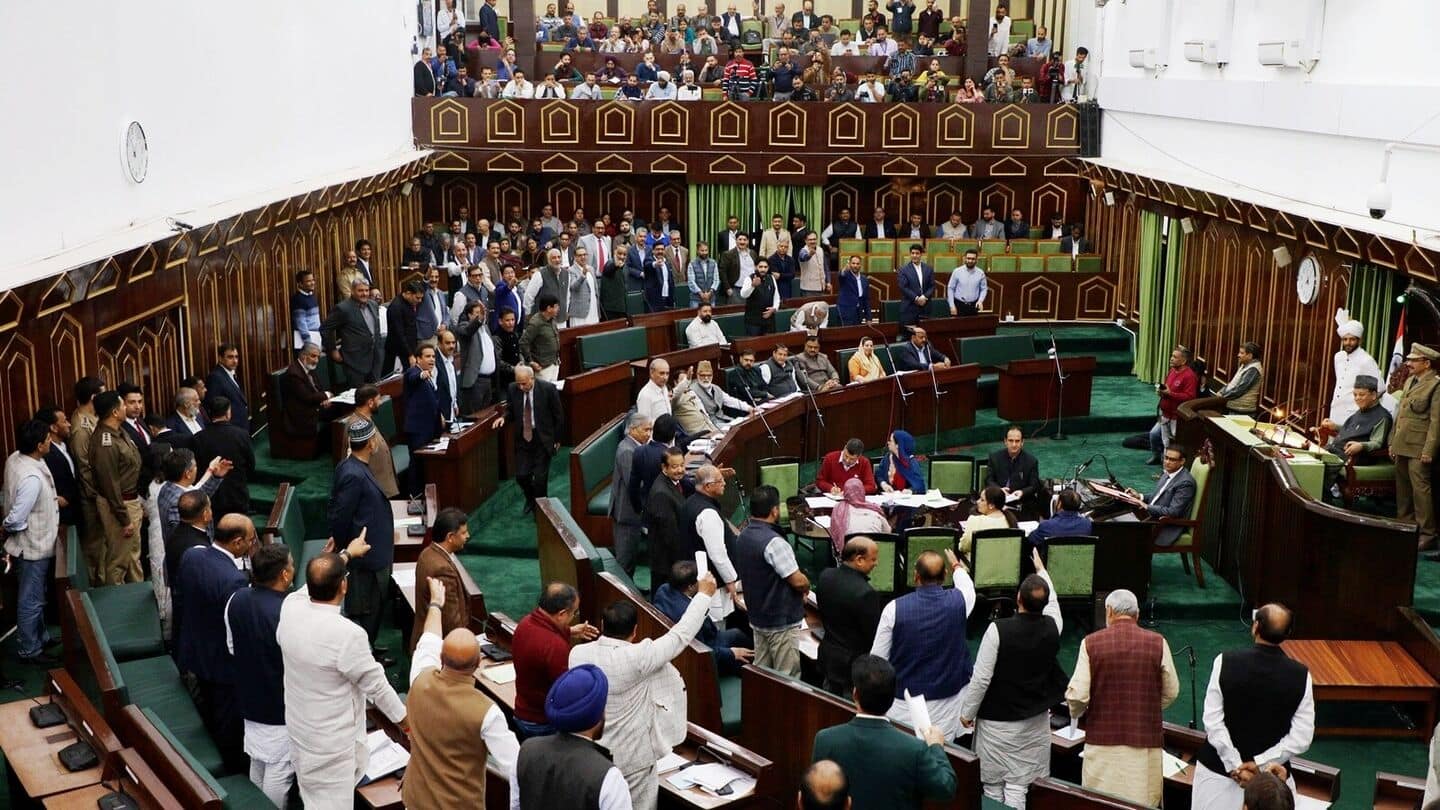
Chaos in J&K assembly over Waqf Act; MLAs tear copies
What's the story
The Jammu and Kashmir Assembly saw much ruckus on Monday as members of the National Conference (NC) and its allies protested the newly passed Waqf Amendment Bill.
Speaker Abdul Rahim Rather's denial of their adjournment motion over this act added to the chaos.
As the session began, opposition MLAs expressed concern over the implications of recent amendments to the Waqf Act, demanding discussion on it.
Speaker's stance
Speaker cites Supreme Court involvement as reason for refusal
But Speaker Rather clarified that the issue couldn't be taken up.
"Since this issue is in the Supreme Court and I have got a copy of it, the rule clearly says that we cannot discuss through an adjournment motion," he said.
Amid the sloganeering, NC MLAs Hilal Lone and Salman Sagar tore copies of the Waqf Act, while NC MLA Abdul Majeed Larmi tore his jacket on the House floor in protest.
Protest escalation
Protests escalate following speaker's refusal
NC MLAs tried to go to the well but were restrained by marshals.
The Peoples Democratic Party (PDP) also joined in on the protests and accused the NC of colluding with the government on this matter.
"When Article 370 and CAA were in the court, we brought a resolution, and many states brought it. Today, we want to register our protest against the Waqf Bill, but...Speaker rejected the resolution. They are playing a fixed match," PDP leader Waheed Para said.
Bill details
Waqf amendment bill aims to improve property management
The Waqf (Amendment) Bill 2025 became a law on Saturday after it got the assent of President Droupadi Murmu. She also gave her assent to the Mussalman Wakf (Repeal) Bill, 2025.
The new bill requires waqf boards to produce legal paperwork in order to claim property as waqf.
In the event of a dispute, particularly over territory deemed government-owned, the government will make the final decision.
The bill also allows non-Muslims to be nominated to waqf boards and tribunals.
Legal challenge
Rashtriya Janata Dal plans to challenge bill in SC
Furthermore, the bill allows court participation in disputes, replacing the previous system in which rulings by waqf tribunals were considered final.
The bill also envisions a centralized registration mechanism that would require all waqf properties to be registered within six months of the law's implementation.
Requests for new waqf property registrations must also be filed to the waqf board.
Many parties, including the Rashtriya Janata Dal (RJD), have challenged the Waqf Amendment Bill in the Supreme Court.